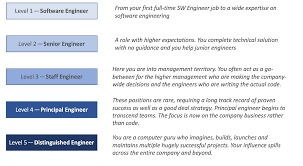Empowering the Next Generation: Junior Programmer’s Path to Success
The Role of a Junior Programmer in the Tech Industry
In the fast-paced world of technology, junior programmers play a vital role in shaping the future of software development. These entry-level professionals are often the backbone of development teams, contributing fresh ideas, enthusiasm, and a willingness to learn.
Responsibilities of a Junior Programmer
Junior programmers typically work under the guidance of senior developers and are responsible for tasks such as:
- Writing code based on specifications provided by senior team members
- Testing and debugging code to ensure its functionality
- Assisting in the design and implementation of software solutions
- Collaborating with team members to solve technical challenges
- Continuously learning new technologies and best practices in programming
Skills Required for Success
To excel as a junior programmer, individuals need a combination of technical skills and soft skills. Some key skills include:
- Proficiency in programming languages such as Java, Python, or C++
- Understanding of basic software development principles and methodologies
- Problem-solving abilities and attention to detail
- Strong communication skills for effective collaboration with team members
- Adaptability and eagerness to learn new technologies quickly
Career Growth Opportunities
While junior programmers start at an entry-level position, there are ample opportunities for growth within the tech industry. With experience and continuous learning, junior programmers can advance to roles such as software developer, senior programmer, or even project manager.
By honing their skills, taking on challenging projects, and seeking mentorship from experienced professionals, junior programmers can carve out successful careers in the dynamic field of technology.
8 Essential Tips for Junior Programmers: Building Skills and Confidence
- Always be willing to learn and improve your skills
- Ask questions when you’re unsure about something
- Practice coding regularly to enhance your proficiency
- Seek feedback from senior developers to grow professionally
- Document your code for better understanding and future reference
- Collaborate with team members to solve problems more effectively
- Stay updated with the latest technologies and trends in programming
- Don’t be afraid to make mistakes, they are opportunities for learning
Always be willing to learn and improve your skills
For junior programmers, one crucial tip for success is to always maintain a mindset of continuous learning and skill improvement. Embracing new technologies, seeking out mentorship, and actively pursuing opportunities to enhance your programming abilities can not only expand your knowledge but also boost your confidence and effectiveness as a developer. By staying open to learning and growth, junior programmers set themselves on a path towards achieving excellence in the ever-evolving tech industry.
Ask questions when you’re unsure about something
When navigating the complexities of software development as a junior programmer, it is crucial to remember the value of asking questions when uncertainty arises. Seeking clarification and guidance from experienced team members not only demonstrates a proactive approach to learning but also helps in avoiding potential errors and misunderstandings. Embracing a culture of curiosity and open communication can lead to valuable insights, foster professional growth, and ultimately contribute to the success of projects.
Practice coding regularly to enhance your proficiency
Practicing coding regularly is a crucial tip for junior programmers looking to enhance their proficiency in software development. By consistently working on coding challenges, projects, or exercises, junior programmers can sharpen their problem-solving skills, become more familiar with programming languages and frameworks, and gain confidence in their abilities. Regular practice not only improves technical proficiency but also fosters a deeper understanding of coding concepts and best practices, setting the foundation for a successful career in the tech industry.
Seek feedback from senior developers to grow professionally
Seeking feedback from senior developers is a valuable tip for junior programmers looking to grow professionally. By actively soliciting input and guidance from experienced team members, junior programmers can gain valuable insights, improve their skills, and accelerate their learning curve. Constructive feedback helps junior programmers identify areas for improvement, refine their coding practices, and expand their knowledge of best practices in software development. Embracing feedback as a tool for growth demonstrates a proactive attitude and a commitment to continuous improvement in the dynamic field of technology.
Document your code for better understanding and future reference
Documenting your code is a crucial tip for junior programmers to enhance understanding and ensure future reference. By adding clear and concise comments throughout the codebase, developers can explain the purpose of their code, how it functions, and any potential pitfalls or considerations. This practice not only helps fellow team members comprehend the logic behind the code but also aids in troubleshooting and maintenance tasks down the line. Effective documentation serves as a valuable resource for junior programmers to revisit their work, learn from past implementations, and streamline future development processes.
Collaborate with team members to solve problems more effectively
Collaborating with team members is a crucial tip for junior programmers to enhance problem-solving effectiveness. By working together with colleagues, junior programmers can leverage diverse perspectives, share knowledge, and brainstorm innovative solutions to complex technical challenges. This collaborative approach not only fosters a sense of teamwork but also accelerates learning and professional growth as individuals benefit from each other’s expertise and experience. Embracing collaboration as a core practice can lead to more efficient problem resolution and contribute to the overall success of development projects.
Stay updated with the latest technologies and trends in programming
Staying updated with the latest technologies and trends in programming is crucial for junior programmers to thrive in the ever-evolving tech industry. By keeping abreast of new developments, tools, and best practices, junior programmers can enhance their skills, stay competitive, and contribute more effectively to their teams. Continuous learning not only broadens their knowledge base but also opens up opportunities for innovation and career growth. Embracing a mindset of lifelong learning ensures that junior programmers remain adaptable and well-equipped to tackle the challenges of modern software development.
Don’t be afraid to make mistakes, they are opportunities for learning
Embracing mistakes as learning opportunities is a valuable tip for junior programmers. By acknowledging and analyzing their errors, junior programmers can gain insights into problem-solving strategies, coding best practices, and software development principles. Each mistake presents a chance to grow, improve skills, and ultimately become a more proficient programmer. It’s through these experiences that junior programmers can refine their craft and build a solid foundation for a successful career in the tech industry.






